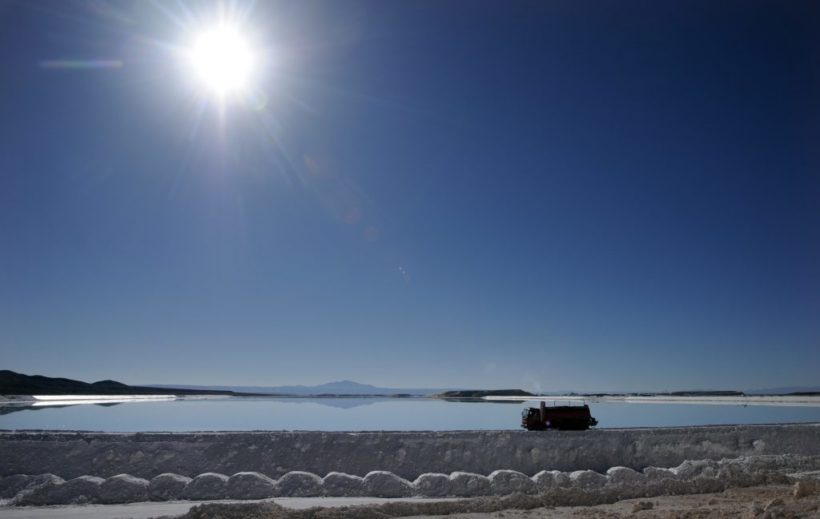The government of Sebastián Piñera, through the Ministry of Mining, notified the awarding of the bidding process to boost lithium production, giving two quotas to the companies BYD Chile SpA (of Chinese capital) and Servicios y Operaciones Mineras del Norte S.A.
“Each was awarded a quota of 80,000 tonnes of marketable lithium metal (LME), for which BYD Chile SpA bid US$61 million and Servicios y Operaciones Mineras del Norte S.A. bid US$60 million, respectively,” the mining ministry said in a statement.
Both bids – substantially higher than the rest of the bids received, the government said – “are the ones that best respond to the state’s interest in increasing competition in this market and obtaining the most satisfactory fee collection”. The state will receive, without considering future payments for production, US$121 million for these two quotas.
The entry of both companies gives a leading role to private companies in the local lithium industry, something that so many organisations had protested against. “The awarded quotas, totalling 160,000 tonnes of LME, represent 1.8% of the known lithium reserves in our country,” the mining official added.
Before starting the exploration and production stage, the companies will have to obtain all the required permits from the relevant environmental and other authorities, as well as “generate the necessary spaces for dialogue to ensure that the projects are developed in harmony with the local communities, taking care of the environment and respecting our current legislation”.
The government also stated that it will work with the companies awarded the contracts to incorporate formulas that allow them to allocate a portion of the payments they will have to make to contributions to local communities and investments in R&D.
Finally, the government said it “reaffirms its willingness to form a National Lithium Roundtable to draw up a strategy for the development of this industry, with a State and long-term vision”, in response to pressure from the team of President-elect Gabriel Boric. “It is something that we are going to review with our teams, and we maintain our willingness to create a National Lithium Company, which also acts in consideration of the communities, with the care of the salt flats, with national productive development”, said the President-elect after the decision of the Piñera government, assuring that it is “bad news for Chile” and that it reminds him of the “laws of restraint” imposed by the dictatorship of Augusto Pinochet, towards its end, to limit the room for manoeuvre of future democratic administrations.
“This was an exclusive power of the Chilean government in office. It seems to us to be bad news and reminds me of those ‘tie-up laws’ that were made at the last minute, when a government is already leaving office and that finally tie up all Chileans, in this case, for 20 years”, the President-elect pointed out.
“What we told the government was that our position was not to innovate in the matter and that, therefore, they should allow us to have a long-term debate on such a strategic asset as lithium. If they were going to do it, they should at least lower what they were committing to at the time,” the new president said.










